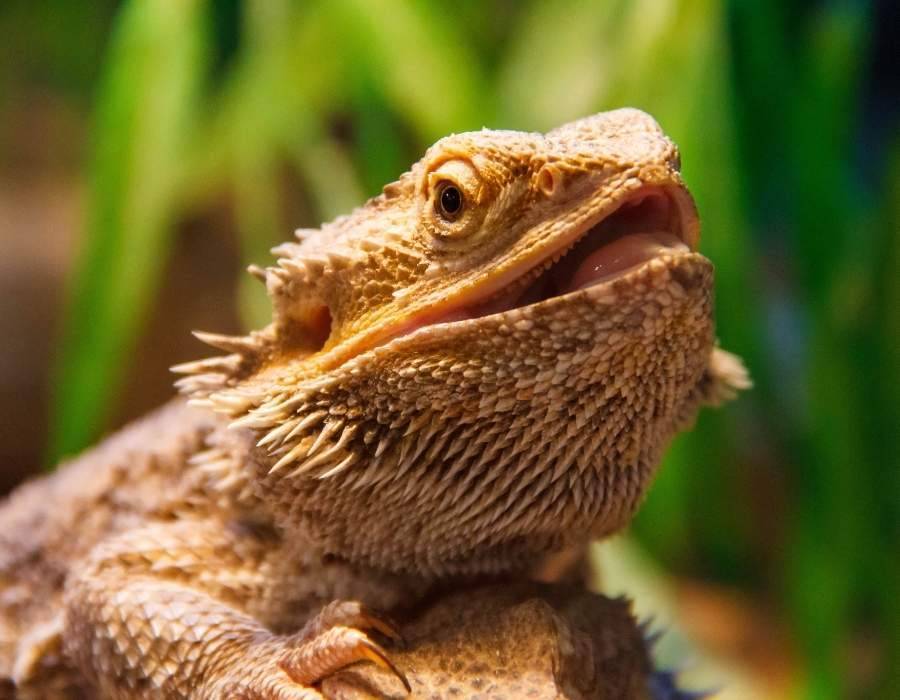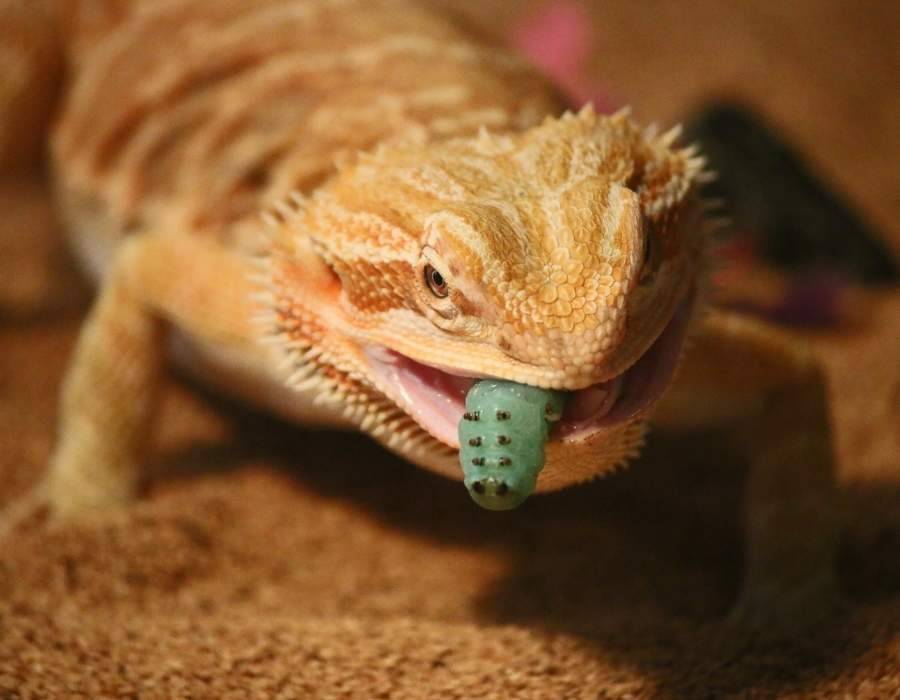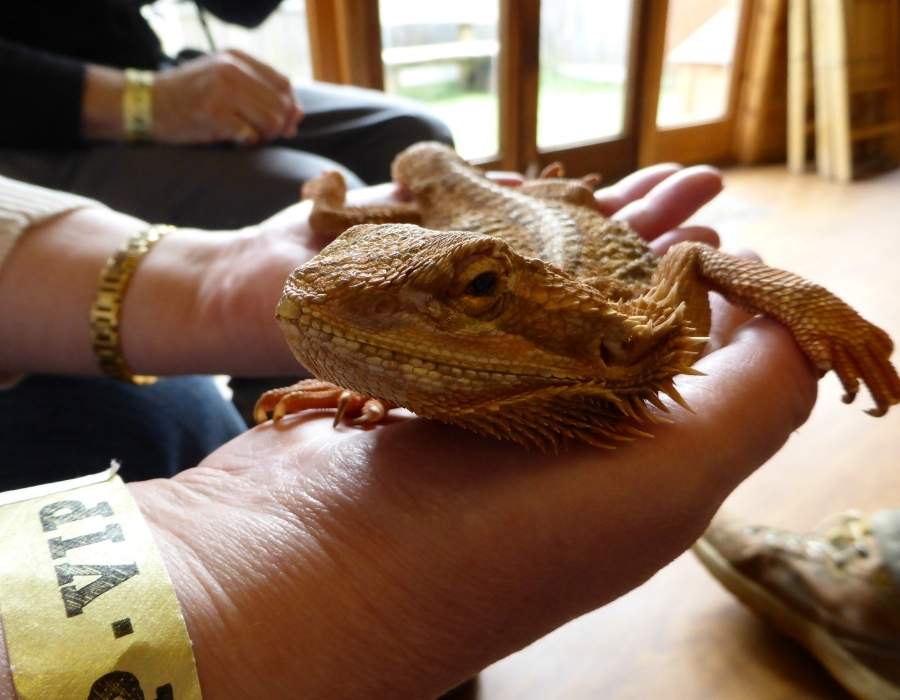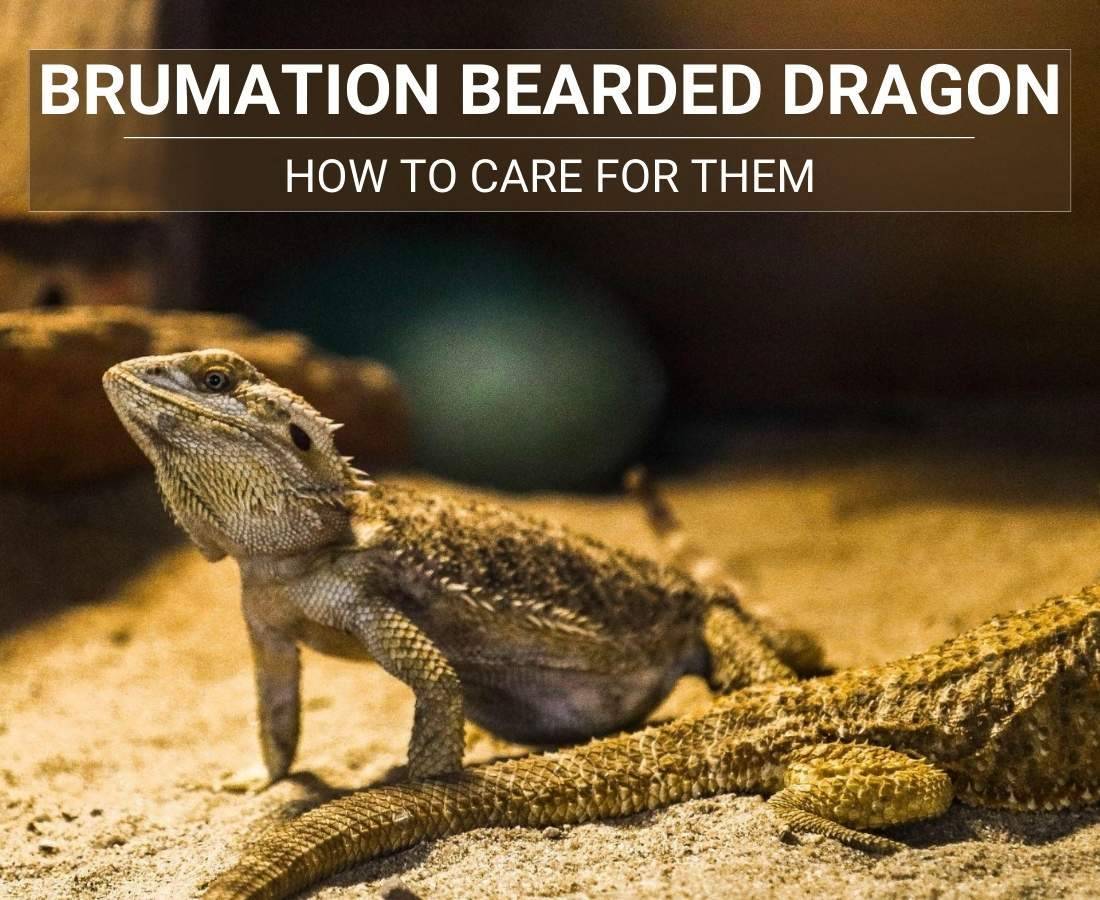Table of Contents
- 1 Key Takeaways
- 2 Signs Your Bearded Dragon is Going into Brumation
- 3 What Triggers Brumation in Bearded Dragons?
- 4 How Long Does Brumation Last?
- 5 Is Brumation a Process Every Bearded Dragon Goes Through?
- 6 How Often Does Brumation in Bearded Dragons Take Place?
- 7 What Can You Do to Ensure Your Bearded Dragon is Safe During Brumation?
- 8 How to Take Care of Your Bearded Dragon during Brumation
- 9 Final Thoughts
- 10 How to Safely End Brumation in Bearded Dragons
- 11 FAQ
- 11.1 What are the common signs that my bearded dragon is entering brumation?
- 11.2 When do bearded dragons typically brumate in captivity?
- 11.3 Why is a vet check important before brumation?
- 11.4 How should I adjust temperatures for a brumating bearded dragon?
- 11.5 Should I feed my bearded dragon during brumation?
- 11.6 How important is water during brumation?
- 11.7 How much weight loss is normal during brumation?
Key Takeaways
- Bearded dragons show several brumation signs including decreased appetite, lethargy, hiding, and sleeping more as they prepare for this hibernation-like state.
- Brumation in captivity varies widely – some dragons brumate annually during winter while others may brumate once every few years or even just once in their lifetime.
- Before brumation, schedule a veterinary check-up to ensure your dragon is parasite-free and healthy enough to safely enter this state.
- Create proper brumation conditions by adjusting temperature settings (80°F daytime, 60-75°F nighttime) and reducing light hours to 8-12 daily.
- During brumation, continue providing fresh water and monitor weight regularly – if you need to get your bearded dragon out of brumation, gentle warm baths can sometimes help stimulate activity.
If your kids love reptiles, consider getting them a pet lizard. Bearded Dragons are the most popular pet reptiles; people love them as they are safe, occupy little space, and don’t need much attention.
Suppose you have a bearded dragon; you must know all about the brumation process, be able to identify the signs, create the right conditions for the brumation, and care for your brumating dragon. Luckily, we’ve researched and compiled all the information you need about caring for your brumation bearded dragon.

Signs Your Bearded Dragon is Going into Brumation
As your dragon prepares to go into brumation, you need to know the signs to watch out for but first, click here for the most in-depth guide to brumation in bearded dragons.
Lack of Appetite
If your bearded dragon is eating less every other day, it’s a sign that its body is preparing for brumation.
As winter starts, plants die out in the wild, meaning crickets and other insects will also disappear. This prompts the bearded dragon to start the brumation process as food becomes scarce. Although food is not lacking in captivity, weather changes encourage them to go into brumation.
Lethargy
As your bearded dragon enters brumation, they become more sluggish and don’t want to use any energy. They will move less and less to preserve their energy for this period of hibernation.
Lack of Basking
In typical situations, bearded dragons love basking under the sun or staying near the heating lamp in the tank. So if you notice that your bearded dragon is coming out less and prefers to remain hidden away in a corner away from the heating lamp or sunlight, it’s a sign that they are going into brumation.
Although bearded dragons leave their mouths open to regulate their temperature, especially when sitting near heating lamps. It’s been observed that they also leave their mouth open during brumation to conserve their energy.
Hiding
During brumation, your dragon will hide in a corner away from the sunlight to preserve its energy. They do this to retain their body heat.
Pooping Less
As your bearded dragon goes into brumation, you’ll notice that the poo becomes less and less until there is nothing. This is mainly because their feeding reduces until they don’t feed anymore. To avoid complications, every owner should ensure that your bearded dragon enters brumation with zero food in their bellies.
Sleeps Constantly
As your dragon enters brumation, they will spend more time sleeping than being awake as it helps them conserve energy. This is the most common telltale sign of brumation as most bearded dragons are generally quite active during the day.

What Triggers Brumation in Bearded Dragons?
The environment in which your pet lizard resides determines whether your bearded dragon will go into brumation or not. In the wild, bearded dragons go into brumation during the cold months of winter.
However, in captivity, many bearded dragons do not go into brumation because their owners provide them with a warm environment, preventing hibernation. And those that do go into brumation do not go on as long or as intense a brumation as they would in the wild because the weather is not as cold.
Bearded dragons are attuned to notice changes in the environment, so when the winter months approach, your pet can see that the light hours are changing, meaning reduced daylight hours and cooler temperatures. This prompts them to prepare for brumation.
Since the temperature and lighting are controlled for bearded dragons, it might be confusing as their bodies are programmed to sleep, but the environment is not supporting their way of life. As such, your bearded dragon will not go into a full-on brumation. Instead, they will display signs of brumation, such as lethargy, sleepiness, and lack of appetite.
How Long Does Brumation Last?
Bearded dragons do not have a specific period when their brumation will end. They can stay in hibernation for several weeks to four months. However, in the wild, brumation ends when winter comes to an end.
In captivity, bearded dragons do not go into total hibernation; they will just be sluggish. Most often, they will sleep for a few days, then come out of hibernation for a few days and go back to sleep. This will be an on-and-off situation until the cold season ends. If you want your bearded dragon to go into full-on hibernation, set up winter temperatures and lighting cycles to encourage them.

Is Brumation a Process Every Bearded Dragon Goes Through?
In the wild, all bearded dragons brumate during winter. However, in captivity, several pet owners attest to never having seen their bearded dragons going into brumation. But since brumation in captivity does not often involve going into total hibernation, pet owners might not notice that their pets are brumating. However, if you are keen, you’ll see subtle changes, such as decreased appetite and lethargy.
Brumation is a process most reptiles must undergo, especially during winter, as it helps with breeding. However, for bearded dragons, brumation does not help with breeding as they are prolific breeders. But it’s believed to prolong their lives.
How Often Does Brumation in Bearded Dragons Take Place?
Out in the wild, bearded dragons brumate once per year during winter. However, domesticated bearded dragons do not have a set time as their owners control their environment. So, to induce brumation, they have to set winter temperatures and reduce light hours. For instance, a bearded dragon brumation may take place:
- Once every year, during the winter months
- Once every few years
- Once in their lifetime
This is because each bearded dragon is different from the other, and their brumation patterns also vary. So watch your pet closely to identify signs of brumation and take care of them accordingly.
What Can You Do to Ensure Your Bearded Dragon is Safe During Brumation?
You are not supposed to feed your dragon during brumation, particularly if they brumate deeply. And when you notice signs of brumation, take the necessary measures and prepare by following these five steps.
Schedule a Vet Check-up
Before winter approaches, schedule a vet check-up for your bearded dragon. The vets check whether your pet is healthy and rules out the presence of parasites. They also update your pet’s file should it ever get ill.
The vets rule out the presence of parasites because they can cause severe illness or even death for your bearded dragon during brumation. This is because, during this period, your pet’s immune system is not as strong, allowing the parasites to wreak havoc in its body within a short time.
Set Up Winter Climate
Set up the heating and lighting equipment in the bearded dragon tank. Ensure you can adjust the equipment to replicate their natural habitat during summer and winter. Use a thermostat and input the correct temperature settings, and in case of weather changes, you won’t have to be concerned as it will adjust itself accordingly.
During summer, you should aim to maintain the temperatures between 95 -105 degrees Fahrenheit, especially during the day, and not below 70 degrees Fahrenheit at night. And the light hours should range from 12 to 14 hours.
During winter, the temperatures should be reduced to 80 degrees Fahrenheit during the day and 60-75 degrees Fahrenheit at night. The light hours should also be reduced to around 8 to 12 hours. And once your bearded dragon enters brumation fully, you can switch off the lights, creating an environment close to their natural habitat during brumation.
Caution: do not let the temperatures drop below 60 degrees Fahrenheit, especially if your dragon is underage, ill, or has parasites. This is because the low temperatures accelerate the spread of parasites or illness and can even lead to death.
Creating Hiding Spots
During brumation, bearded dragons prefer to burrow in a cave or sand in their natural habitat. So replicate this by creating a hiding spot.
You can use a branch with some foliage or a box with some hay on top. Ensure that the things you use are not flammable since you might have a heating system in the dragon’s house.
Monitor Its Feeding and Stool
As your bearded dragon enters brumation, you should reduce the food intake as it should never brumate with a stomach full of food. This is because no digestion will occur when it sleeps, leading to food rotting in the stomach.
So as winter nears, start reducing the food until you are sure nothing is in its belly.
Monitor Its Health and Hydrate
Ensure you can access the hiding spot to monitor and weigh your bearded dragon once it enters brumation. Before it starts brumating, weigh your pet and keep a record throughout that period. Also, keep a small water basin in its house so it can drink once it feels like it.
If your dragon loses too much weight within a short period, notify your vet.
How to Take Care of Your Bearded Dragon during Brumation
During brumation, your dragon doesn’t need as much attention, but you’ll still need to provide them with care and maintain their habitat. You can do the following for a smooth brumation process.
Lighting and Heating
Ensure that the lighting remains within the comfortable winter levels. It’s best if you replicate their natural habitat conditions.
Water
Although they don’t eat during brumation, they’ll take a sip of water from time to time. So, place a small water bowl in the tank and replace it regularly to avoid infections.
Others recommend bathing your bearded dragon, as this will prompt them to drink a little water without expending much energy. Hold their head to prevent them from drowning.
Feeding
Most dragons don’t eat during brumation, but if you notice they are interested, offer them a small amount of easily digestible food. However, ensure they don’t go back to sleep immediately after eating as the food won’t be digested. Keep them busy and expose them to UVB as it speeds up digestion.
Cleaning Their Habitat
Ensure that your dragon is sleeping in a clean environment. This will help keep away bacteria and parasites that can cause illnesses.
Final Thoughts
Lizards have a deep spiritual significance and that makes them unique as pets, among other things. Another unique aspect of a pet lizard, such as a bearded dragon, is the brumation process.
Brumation is common among reptiles, and bearded dragons are no exception. As your dragon goes into brumation, you’ll notice signs such as the fact that its appetite decreases, it becomes lethargic, and it constantly sleeps. This is a sign that they are conserving energy for their hibernation or brumation period. Therefore, take your pet to the vet when you see these signs to get a clean bill of health and follow the tips above when caring for your bromating dragon.
How to Safely End Brumation in Bearded Dragons
While brumation is a natural process for bearded dragons, there may be situations where you need to encourage your pet to emerge from this state. Understanding how to get a bearded dragon out of brumation safely is essential knowledge for any responsible owner, especially if your dragon has been brumating for an extended period or shows concerning weight loss.
Gradual Temperature Adjustments
One of the most effective methods to bring your bearded dragon out of brumation is gradually increasing the temperature in their enclosure. Start by raising the basking spot temperature by 2-3 degrees every few days until you reach summer conditions (95-105°F). Simultaneously, extend the UVB light exposure hours from the winter schedule of 8-10 hours to the summer schedule of 12-14 hours. This mimics the natural transition from winter to spring that triggers dragons to end brumation in the wild.
Warm Bath Technique
Lukewarm baths can effectively stimulate a brumating bearded dragon. Prepare a shallow bath with water at 85-90°F and gently place your dragon in it for 15-20 minutes. The warm water helps increase their body temperature and often encourages movement and drinking. Always support your pet during bathing and never leave them unattended. Many owners report that consistent bath sessions over several days can help draw dragons out of deep brumation states when combined with environmental adjustments.
When to Seek Veterinary Help
While brumation is natural, it’s important to distinguish it from illness. If your attempts to end brumation don’t show results after 2-3 weeks, or if your dragon has lost more than 10% of their pre-brumation weight, consult a reptile veterinarian. Signs that warrant immediate attention include sunken eyes, excessive weight loss, discolored urates, or difficulty breathing. A veterinarian can determine if your dragon is experiencing prolonged brumation or suffering from a condition that mimics brumation symptoms, such as impaction or respiratory infection.
Remember that bearded dragons may emerge from brumation gradually, showing increased alertness and movement before resuming normal feeding patterns. Offering hydration opportunities and highly appealing foods like hornworms can encourage your dragon to fully return to their active state. Most importantly, be patient—while you can create conditions that encourage the end of brumation, forcing this natural process can cause stress to your pet.
FAQ
What are the common signs that my bearded dragon is entering brumation?
Common signs include decreased appetite, spending more time hiding, reduced activity levels, and increased sleeping. Your dragon may also dig more, show less interest in interaction, and might partially bury themselves. These behaviors typically intensify as they prepare for full brumation.
When do bearded dragons typically brumate in captivity?
Most bearded dragons brumate during winter months (October through March in the Northern Hemisphere), though timing varies between individuals. Some dragons brumate annually, while others may only brumate once every few years or skip years entirely based on environmental conditions.
Why is a vet check important before brumation?
A veterinary check ensures your dragon is healthy enough to safely brumate. The vet can check for parasites, infections, or health issues that might be dangerous during the low-metabolism state of brumation. This prevents mistaking illness symptoms for normal brumation behavior.
How should I adjust temperatures for a brumating bearded dragon?
Lower the basking spot to around 80°F during the day and allow nighttime temperatures to drop to 60-75°F. This temperature reduction mimics natural seasonal changes and supports the brumation process, while still providing enough warmth for essential bodily functions.
Should I feed my bearded dragon during brumation?
Offer food occasionally but don’t force-feed. Most brumating dragons naturally refuse food or eat minimally. If they accept food, provide small portions of easily digestible items. Remove uneaten food promptly to prevent spoilage in the enclosure.
How important is water during brumation?
Fresh water remains essential during brumation. Your dragon may drink very little, but dehydration poses serious health risks. Provide shallow water dishes and consider offering weekly warm baths to encourage hydration, even if your dragon is mostly inactive.
How much weight loss is normal during brumation?
Mild weight loss (5-10% of body weight) is normal during brumation due to reduced feeding. Monitor weight weekly using a digital scale. Weight loss exceeding 10% warrants veterinary attention, as it may indicate dehydration, illness, or nutritional problems rather than normal brumation.



